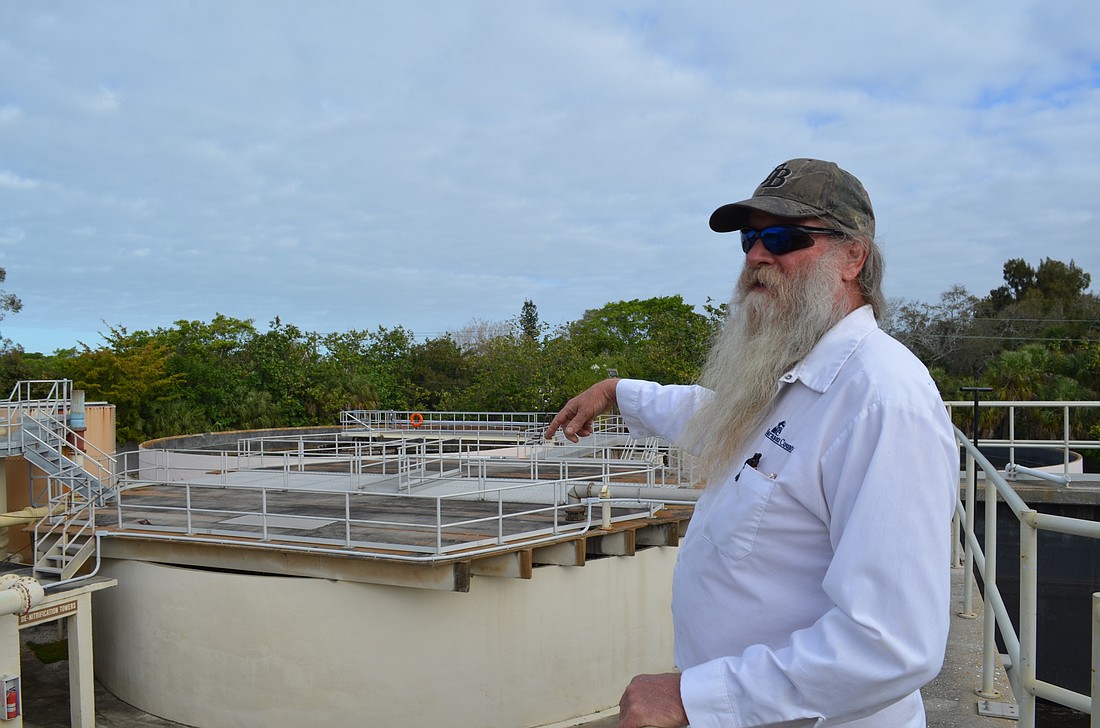- November 24, 2024
-
-
Loading

Loading

Tucked between one of the largest neighborhoods on Siesta Key and the canopied streets of Winding Way and Oakmont Place, a 4.5- acre sewage plant has been operating for more than 40 years.
Sarasota County was supposed to shut the aging wastewater facility down by the end of 2016, potentially replacing most of the land with a waterfront park and smaller pump station.
But the project will have to wait another two years as the county works to construct more than four miles of underground pipes and other infrastructure. On Tuesday, commissioners voted to make the mid-2018 date to shut down the facility official.
“While reviewing all the projects associated with being able to get that project offline — including two plant expansions — we’re adding a year,” said Dave Cash, a manager in the county’s public utilities department.
In 2011, the Florida Department of Environmental Protection fined the county more than $89,000 for five violations related to pollution levels in discharges into the Grand Canal. The state gave the county two years to correct those levels, which it later extended to the final day of 2016. Instead, county staff decided to decommission the plant.
“The facility is old, it requires major upgrades, it’s on a barrier island and it’s in a neighborhood setting,” Cash said.
Right now, the facility processes as much as 2 million gallons of wastewater daily at the height of season, according to chief plant operator Roger Hostetler. The process can take several hours to an entire day.
Instead of treating sewage that arrives at the center of the island on-site, the new master pump station will direct the wastewater to separate treatment facilities on the mainland. Concurrently, the facilities must be expanded to keep up with capacity, Cash said.
Despite its proximity to nearby homes, Cash said his department doesn’t field many complaints about the plant.
“It’s been there so long, everything has grown up around it,” Cash said. “So it’s just become part of the neighborhood.”
Siesta Isles Association President Tony Romanus agreed, and said his organization rarely hears about it.
On its website, the county’s engineering consultant for the project suggested a park might be an option for the land once the plant is decommissioned.
Romanus expressed enthusiasm about the possibility of a future park at the site.
“If you take away what could be an environmental disaster and replace it with a park, that’s wonderful,” Romanus said.
When he considers a potential new park in his neighborhood, Romanus does have one concern: traffic. The neighborhood of roughly 300 homes is located in the heart of the island just north of the public beach, and local streets have the tendency to “turn into a bit of a racetrack.”
“It would be a great spot to drop a kayak in,” Romanus said. “We just don’t want a big power boat ramp.”
Cash said the new pump station should be working by January 2018, which will give staff about six months to test the system before the FDEP deadline of June 18.
As the project proceeds, the future of the sewage plant site remains uncertain. The idea for park has not been formally considered, according to county staff.
“Because there’s no solid plan yet, and we don’t know what it’s going to be, there’s nothing to get too fired up about,” Romanus said.